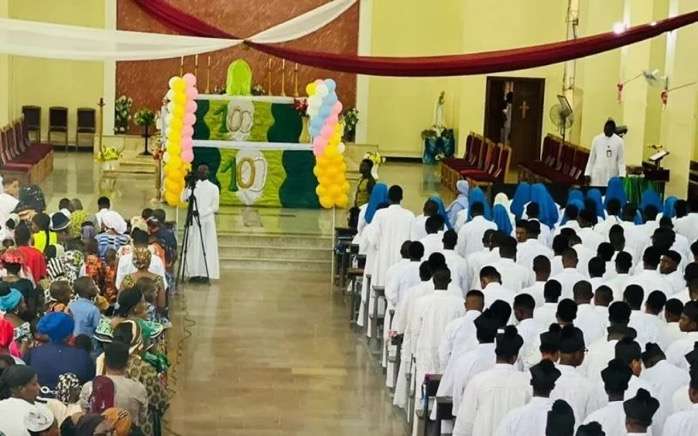“Without the church, especially the Catholic Church, many of us and our parents would not have been alive today.”
Bishop Godfrey Igwebuike Onah of Nsukka suggested that the Nigerian Civil War of 1967-1970 triggered a significant increase in religious vocations.
Speaking on 14 November as part of centenary of Nigeria’s Bigard Memorial Seminary in Enugu, he highlighted the impact of the civil war, describing it as having genocidal intent, aimed at annihilating the predominantly Christian population of Biafra.
“Without the church, especially the Catholic Church, many of us and our parents would not have been alive today,” he said, an address titled “Crisis of Faith and New Trends in Civilization and Christianity in Nigeria”.
“The Biafra-Nigeria war was prosecuted in a way that would have exterminated all of us. For the first time in modern history, genocide was so carefully programmed that hunger and starvation, blockade, and total silence were used as weapons of war.”
Onah said that the then-Archbishop of Onitsha Francis Arinze collaborated with other bishops in the region to inform the world about the atrocities occurring in Biafra.
Even as the Vatican began to lean sympathetically towards the Nigerian forces, Arinze remained defiant, urging global leaders and the Holy See to see the truth, said Onah, quoting his words: “We are being exterminated, and we are a bastion of the Christian faith. Whatever you can do to save us, please do it.”
By his efforts, photographs of suffering Biafran children and the widespread carnage reached international audiences, eliciting a global outcry. Irish missionaries, inspired by the courage of Arinze and his fellow bishops, chose to stay in Biafra, risking their lives to support the people.
“They smuggled food, medications, and used clothes under constant bombardment, embodying the spirit of sacrifice and solidarity,” said Onah, who himself had survived on these supplies.
Onah said the Irish missionaries were eventually forced out of the country for their support of Biafra, with the expectation that the Church would diminish in eastern Nigeria. However, there was a different outcome, Onah said.
“What we now know as vocation boom in our region happened. Within the space of six years, from 1970 to 1976, this big memorial seminary had become the largest in the world,” he said.
Alumni of the Bigard Memorial Seminary, founded in Onitsha in 1922 and opened in 1924, include four cardinals, 14 archbishops, 37 bishops, and thousands of priests.
Onah warned that there were still challenges to the Church, including a crisis of faith across Africa that could threaten the future of Catholicism in jeopardy.
“Africa is said to be the future of the Church. But many of our young people who will shape that future are leaving or have left the church,” he said. “It is an invitation to renewal and restart strategising.”








